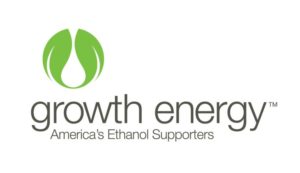EPIC Rolls Into Growth Energy
 Just over three years after its formation, the Ethanol Promotion and Information Council (EPIC) officially came to an end in November 2008, folding into the newly created Growth Energy, with a focus more on policy than promotion.
Just over three years after its formation, the Ethanol Promotion and Information Council (EPIC) officially came to an end in November 2008, folding into the newly created Growth Energy, with a focus more on policy than promotion.
POET CEO Jeff Broin announced the launch of Growth Energy at a National Press Club event in early November.
“The organization will be dedicated to promoting clean, green ethanol as America’s best renewable fuel that is high-tech and homegrown, reducing greenhouse gas emissions and the nation’s dependence on foreign oil,” said Broin.
Answering questions about why yet another organization for ethanol was needed, “We believe the more associations, the better,” Broin said. He denied that there is any dissatisfaction with the way current organizations, such as the Renewable Fuels Association, have been working to promote biofuels.
Publicly, RFA welcomed the new organization. “On behalf of ethanol producers across America and in conjunction with our international colleagues, the RFA remains committed to expanding ethanol markets and reducing our dependence on foreign oil, dispelling misinformation about ethanol production and use, addressing climate change, and assuring the full potential of American farmers and ethanol producers is realized and put to work. We welcome another voice in Growth Energy in support of America’s farmers and ethanol producers.”
EPIC was left hanging until Thanksgiving, when EPIC Executive Director Toni Nuernberg made the official announcement that the two groups would combine.
“The mission of EPIC’s formation – growing ethanol awareness through public relations, marketing and promotions — will continue as a core platform of Growth Energy’s initiatives,” said Nuernberg in a statement, noting that EPIC’s programs and staff would to transition into Growth Energy. In reality, few survived into the new year.
Indy Switches to Team Brazil for Ethanol
To cap off a turbulent month, the Indy Racing League announced a multi-year partnership making Brazil the official ethanol supplier to the IndyCar Series beginning with the 2009 season, ending what had been EPIC’s crowning achievement for the American ethanol industry.
“The move to other sources of ethanol is a natural progression as the ethanol industry continues to grow and evolve,” said IRL commercial division president Terry Angstadt. “We continue to strive to be on the leading edge of the greening of racing. The IndyCar Series was the first motorsports series to mandate use of a renewable fuel, and now we will work with the ethanol industry in both the United States and Brazil to promote the use of all types of ethanol by consumers.”
 The deal included cooperation from UNICA (the Brazilian Sugarcane Industry Association) to identify U.S. ethanol companies interested in supplying ethanol to the series for the first year and did include an exception for the Iowa Corn Indy 250 to use domestically produced corn ethanol.
The deal included cooperation from UNICA (the Brazilian Sugarcane Industry Association) to identify U.S. ethanol companies interested in supplying ethanol to the series for the first year and did include an exception for the Iowa Corn Indy 250 to use domestically produced corn ethanol.
The move was a direct result of the EPIC meltdown, despite the tremendous promotional success of the first year for 100% ethanol in the IRL.
The IRL statement noted that EPIC was “ceasing operation,” as the IRL statement notes, in that it will no longer exist as EPIC but as part of the newly formed Growth Energy group. However, the decision to stop sponsorship was made independently of that new direction – not just because it was expensive, but also because it had essentially served it’s purpose in proving ethanol as a performance fuel.
Angstadt said they made the deal with Brazil because, “No one from any other part of the American-based ethanol community stepped forward with a substantial proposal.”
While that marked the end of the U.S. ethanol industry’s relationship with Indy, it would not be long before NASCAR would be revving up to put ethanol on the track.
Speed Bumps Ahead
The screeching halt that the EPIC Indy Car project came to was a foreshadowing of what was to come for the ethanol industry. In 2008, there were 51 plants that started production, the last year that level of expansion would occur. The bust happened virtually overnight.
Despite all the challenges faced by the ethanol industry in 2008, production expanded significantly from 6.9 billion gallons in 2007 to over 10 billion gallons and represented more than 7% of the nation’s gasoline supply, and the head of the Renewable Fuels Association remained the eternal optimist about the future.
“I think that President-elect Obama and his cabinet will reflect our vision for the role that ethanol can play in reducing climate change and reducing energy inputs will help us to move forward in ways that grow the economy and stimulate green jobs,” said RFA’s Dinneen in an end of the year podcast. “And we’re very excited about working with Governor Vilsack, who will be at agriculture, with Dr. Chu, who will be at the Department of Energy. and with others throughout the administration that I think are going to be focused on accelerating the commercialization of cellulosic ethanol and while maintaining the base of the industry as it exists today.”